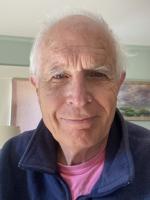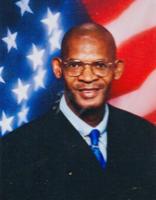VALDOSTA — SGMC Health’s podcast “What Brings You in Today?” has been honored with a Gold Award in the Podcast Episode category at the 2024 Hermes Creative Awards.
Your Latest News
VALDOSTA — A teenager is in critical condition following a dirt bike accident Monday in Valdosta.
TIFTON — The City of Tifton is warning citizens to be “hyper-vigilant” after the city was bilked out of $50,000 in a cyber-scam.
VALDOSTA — A pair of fires kept Valdosta’s firefighters busy this weekend.
VALDOSTA — A Sunday wreck on an I-75 roundabout in Lowndes County resulted in injuries to a driver.
State & Nation
TikTok and its Chinese parent company ByteDance are suing the U.S. federal government over a law that would ban the popular video-sharing app …
The Atlanta City Council has agreed to pay $3.8 million to settle a lawsuit by the family of a church deacon who died in a struggle with a cit…
A jury awards $9 million to a player who sued the US Tennis Association over sexual abuse by a coach
A tennis player has been awarded $9 million in damages by a jury in federal court in Florida after accusing the U.S. Tennis Association of fai…
The PGA Championship field next week at Valhalla includes everyone from the top 100 in the world. The list officially has Tiger Woods. And sev…
Trending Videos
Local Events
Sports
OXFORD, Ala. – The Valdosta State Blazer baseball team's GSC Tournament run was put to an end on Monday night to the hands of the no. three s…
BELLVILLE - Valwood School took down the No. 1 team in the GIAA's Class AAA over the weekend. Now the Valiants are in the final four.
VALDOSTA —Valdosta High and Lowndes High athletes won three events at the Class 7A sectional held Saturday at VHS. Several more athletes saw t…
OXFORD, Ala. – The Valdosta State Blazer baseball team's GSC Tournament run was put to an e…
With the NHL Maple Leafs' latest one-and-done playoff collapse, women's hockey takes center …
A person familiar with the deal told The Associated Press on Tuesday that the Tennessee Tita…
Caitlin Clark’s first WNBA game in Los Angeles is being moved to a bigger stage. The Los Ang…
Colorado adds basketball great Danny Manning to coaching staff as Buffs prepare to rejoin the Big 12
Colorado coach Tad Boyle is adding basketball great Danny Manning to his coaching staff in a…
Diego Maradona’s Golden Ball trophy from the 1986 World Cup has resurfaced. The award which …
The season for the Florida Panthers cannot end on Wednesday night. It’s not an elimination g…
What's Trending
Premium Text Ads
MAGAZINES / SPECIAL EDITIONS
National News
An Israeli tank brigade has seized control of the Gaza Strip side of the Rafah border crossing with Egypt, authorities say, moving forward with an offensive in the southern city even as cease-fire negotiations with Hamas remain on a knife’s edge. The move on Tuesday comes after hours of whiplash in the Israel-Hamas war, with the militant group on Monday saying it accepted an Egyptian-Qatari mediated cease-fire proposal. Israel, meanwhile, insisted the deal did not meet its core demands. The high-stakes diplomatic moves and military brinkmanship left a glimmer of hope alive — but only barely — for an accord that could bring at least a pause in the 7-month-old war that has devastated the Gaza Strip.
Pro-Palestinian demonstrators at the Massachusetts Institute of Technology retook a barricaded encampment, those at the Rhode Island School of Design occupied a building, and Columbia University said its university-wide commencement ceremony will not happen following weeks of protests. At MIT, protesters were given an afternoon deadline in which to voluntarily leave the protest site or face suspension. An MIT spokesperson said many left but protesters breached fencing after the arrival of demonstrators from outside the university. Officials at Columbia said it will focus on smaller school-level graduation ceremonies. Campus protests have sprung up across the U.S. in recent weeks stemming from the conflict that started when Hamas militants attacked southern Israel in October.
Columbia University is canceling its university-wide commencement ceremony following weeks of pro-Palestinian protests. Officials at the Ivy League school in New York City said in a statement Monday that it was going to “forego the university-wide ceremony that is scheduled for May 15” and instead focus on smaller school-level graduation ceremonies. Emory University says it's moving its commencement from its Atlanta campus to a suburban arena. Campus protests have sprung up across the U.S. stemming from the conflict that started when Hamas militants attacked southern Israel in October. Protesters are calling on their schools to divest from companies that do business with Israel or otherwise contribute to the war effort.
Russia's Defense Ministry says it plans to hold drills simulating the use of tactical nuclear weapons. The announcement Monday came days after the Kremlin reacted angrily to comments by senior Western officials about the war in Ukraine. The ministry says the drills are in response to “provocative statements and threats of certain Western officials regarding the Russian Federation.” It was the first time that Russia has publicly announced drills involving tactical nuclear weapons, though its strategic nuclear forces regularly hold exercises. Tactical nuclear weapons have a lower yield compared to massive warheads that arm intercontinental ballistic missiles intended to obliterate entire cities.
Weekend commencement ceremonies at some U.S. universities went off with few interruptions despite the national wave of protests over the Israel-Hamas war. In Boston, Northeastern University's commencement ended peacefully Sunday at Fenway Park. Some students waved Palestinian and Israeli flags. The University of Michigan’s commencement was held Saturday with a few interruptions. At Ohio State University, officials say a person fell from the stands to their death Sunday during the school's graduation ceremony. Details about the death weren't immediately available. Some students and others at the ceremony were visibly upset. But the commencement continued, and speakers did not mention what happened.
They’re hallmarks of American history: protests, rallies, sit-ins, marches, disruptions. They date from the early days of what would become the United States to the sights and sounds currently echoing across the landscapes of the nation’s colleges and universities. Just as much a part of that American history are those same events being met with irritation, condemnation, anger and force. Americans cherish the right to assemble and speak out. It’s enshrined in the first of the constitutional amendments. But the same activities can produce wariness and outright opposition when life’s routines are interrupted, and worry that those speaking out are outsiders looking to sow chaos and influence impressionable minds.
Just a few months short of a quarter-century as Russia’s leader, Vladimir Putin starts another six-year term as president holding extraordinary power. Since becoming acting president on the last day of 1999, he has shaped Russia into a monolith — crushing political opposition, running independent-minded journalists out of the country and promoting an increasing devotion to prudish “traditional values” that push many in society to the margins. His influence is so dominant that other officials could only stand on the sidelines as he invaded Ukraine despite expectations it would bring international opprobrium, as well as cost many Russia lives. With that level of power, what Putin will do in his next term is a daunting concern at home and abroad.
United Methodist delegates have repealed their church’s longstanding ban on the celebrations of same-sex marriages or unions by its clergy. The action marked the final major repeal of a half-century’s collection of LGBTQ bans and disapprovals that were embedded in the laws and social teachings of the United Methodist Church. The 447-233 vote by the UMC’s General Conference came one day after delegates overwhelmingly voted to repeal a 52-year-old declaration that the practice of homosexuality is “incompatible with Christian teaching” and two days after they repealed the denomination’s ban on LGBTQ clergy.
Georgia’s parliament has moved a step closer to passing a law that critics fear will stifle media freedom and endanger the country’s European Union membership bid. Tens of thousands of protesters have thronged surrounding streets. Dozens of people were arrested in the latest rallies, and an opposition leader was seen bandaged and bruised after police used tear gas and water cannons to disperse protesters overnight. Protesters denounce the bill as “the Russian law” because neighboring Russia uses similar legislation to stigmatize independent news media and organizations critical of the Kremlin. A third and final reading of the bill is ahead.
Dan Rather was synonymous with CBS News before the veteran anchorman left in bitterness in 2006, following a discredited report on then-President George W. Bush's military service. On Sunday, he returned to the network for the first time in 18 years. He's now 92 and still an active presence on social media, and he appeared for a “CBS Sunday Morning” interview tied to the Netflix debut this week of a documentary about his life. Rather told correspondent Lee Cowan that “without apology or explanation, I miss CBS. I've missed it since the day I left.” His feud with since-deposed CBS network boss Les Moonves made him a nonperson at the network.
































































Commented
Sorry, there are no recent results for popular commented articles.